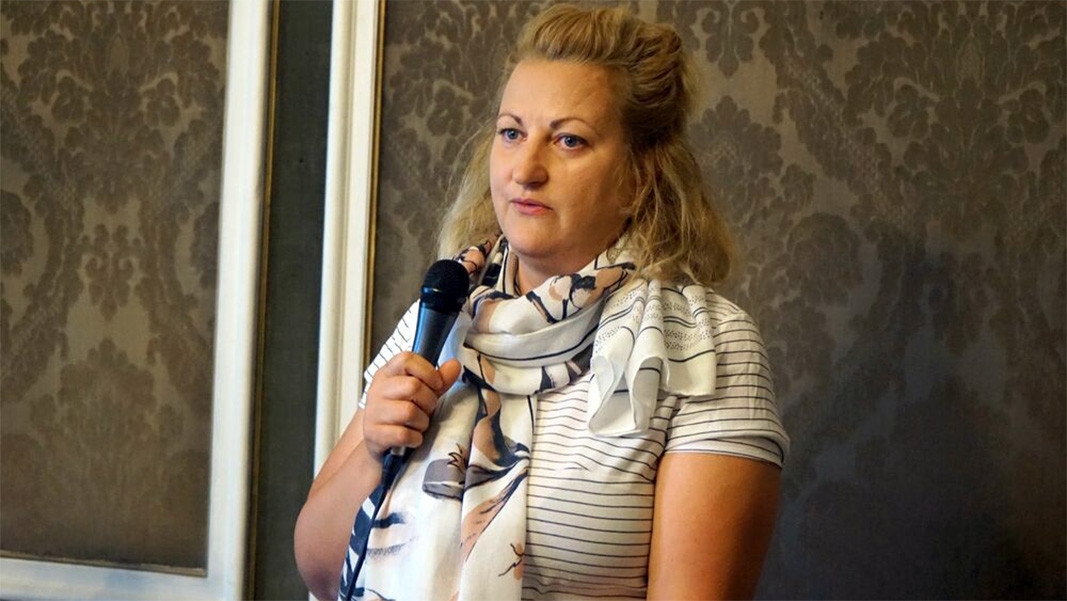There is continuity between the old and new Bulgarian emigration around the world and regardless whether the emigrants are in Africa, South America, Asia or North America, Bulgarian compatriots stay united around their schools and the communities they create. This is just one of the conclusions made by scientists from the Institute of Ethnology and Folklore Studies with Ethnographic Museum at BAS (IEFSEM – BAS) after completing a 4-year large-scale study of the Bulgarian diaspora in countries on 5 continents - Australia, Africa, South America, North America and Asia.
This has been the first detailed study on institutions, relationships, spiritual life of Bulgarians or descendants of emigrants from Bulgaria, as well as on their contacts with the homeland. The scientific project "Cultural heritage and institutionalization of Bulgarian historical and contemporary migrant communities outside Europe" also compares the nature of migration today to that of 100 years ago. The study is financially supported by the Scientific Research Fund of the Ministry of Education and Science. A collection of 17 scientific studies and articles by the participants in the study is now available in an electronic version, entitled "Bulgarians beyond Europe - Institutions and Cultural Heritage."
On June 13, in IEFSEM – BAS , in addition to the collection, a short film created by the researchers during their work among the Bulgarian communities outside Europe was also presented. The processing of dozens of hours of video material is the work of Assistant Professor Lina Gergova and Assistant Professor Yana Gergova. Their goal was to present the points of view of migrants from new and older generations, as well as of people who also define themselves as Bulgarians, even though they are the third or fourth generation offspring of mixed marriages from long time ago.
"Our main point is that the Bulgarian communities and the cultural heritage there are preserved as a result of the work of institutions that the Bulgarians themselves have created. These are the associations, schools, folklore ensembles. This is how they preserve the feeling that they are Bulgarians and maintain interest in the country," Assistant Professor Lina Gergova told Radio Bulgaria:

"We see a number of places that have been without schools for a long time. For example, in Argentina, Canada and Australia, there are generations that no longer speak Bulgarian and being Bulgarian there is already a matter of choice. Many of them are children of mixed marriages but they still choose to be Bulgarian and participate in the life of the community. We, as researchers, do not really believe that they have this attachment to everything Bulgarian because of their genetic affiliation. But there is something else that we must recognize - the enormous efforts of community leaders, people who spend their free time to see a performance of the folk dance club or to organize the school holiday. Sometimes they travel thousand of kilometers to be with other Bulgarians. In some countries, being Bulgarian is very prestigious, such as in Argentina and Brazil. In some countries, if you study Bulgarian, it gives you points when applying for university. For others, the Bulgarian language is the only way to communicate with their grandparents, who are in their homeland."
The short film is actually a continuation of another project by ethnologists of the Bulgarian Academy of Sciences, who previously conducted a similar study of the Bulgarian communities in Europe.
In both cases, the conclusion is that migration has changed a lot over the years, and today people talk more about mobility as the modern alternative to migration, Assistant Professor Lina Gergova says. According to her, the difference between new migration and the old - the descendants of migrants who left in the 20s and 30s of the XX century, is clearly visible in countries such as Canada and Australia.
"There are also countries that have already ceased to be so attractive for Bulgarian migrants, for example Australia and some countries from South America and North Africa, as this is linked to the economic processes in the world. In the United Arab Emirates (UAE), for example, we don’t see migration in the most popular sense – going somewhere once and for all. We see a lot of mobility there. But there is continuity - the newly arrived immigrants find a way to connect with others and they do it through the institutions they themselves created on the spot. But let's not forget the contribution of our embassies, which are being more and more aware of their important role in the existence and functioning of the Bulgarian communities and of the fact they are their link with the homeland."
English: Al. Markov
Photos: BTA
In the secular chronicles of post-liberation Bulgaria, Metropolitan Kliment of Tarnovo is known as Vasil Drumev – a notable writer and public figure, he led an exceptionally spiritual, Christian life. For linguists, he is among the brightest zealots of..
On December 9 the Orthodox Church celebrates the Conception of the Most Holly Theotokos by Saint Anne. Joachim and Anne were childless for a long time despite their righteous life. In addition to their personal grief, they also endured public..
The Bulgarian Orthodox Church honors the memory of St. Nicholas the Wonderworker on December 6. He is called the saint of mercy because his entire life was dedicated to supporting the poor, the suffering, the innocent and the wronged. His words had an..
The Arbanasi architectural reserve near Veliko Tarnovo is one of the most popular tourist destinations . The medieval monasteries and churches, including..
T he Supreme Court of Cassation has given final judgement that the Bulgarian Orthodox Old Calendar Church must be registered in the register of..
In its latest digital section “Buildings Tell a Story”, the Regional History Museum – Sofia presents the stories of iconic buildings in the center..

+359 2 9336 661
